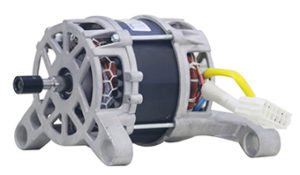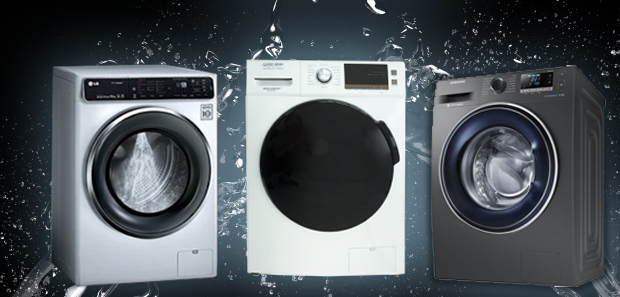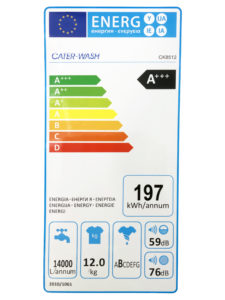Choosing The Best Washing Machine
May 20th, 2019How do you know which washing machine is best for you?
With a huge offering on the market from big brands such as Whirlpool, Samsung, Beko, Belling, Indesit, Bush and with so many enticing washing machine special offers it can be an overwhelming task to choose the best washing machine, the best supplier and the best deal to suit you. A washing machine might not be top of anyone’s list of favourite things to splash the cash on, but the right machine could save you valuable time, keep your clothes cleaner as well as lasting longer.
It may be tempting to choose a washing machine on price alone, especially when it comes as an unexpected hit to the finances. If your current machine has broken down and an overflowing washing that is increasing by the day. However, some ‘cheap’ washing machines may actually end up costing you much more in the long run. Never mind longevity and finding yourself in a similar situation all too soon, the day after the warranty runs out. Consider energy costs and class, and we’re not just thinking of the environment – the amount of water, spin class and electricity usage all have a huge impact on your day to day cost of living and investing a little more on the washing machine can provide a real cash saving, which in time, means the machine will pay for itself!
Look for a machine that has washing machine parts available. Some production lines may be coming to an end which usually means you can get a genuinely good deal on the machine as distributors clamour to sell old stock to make way for new machines. There is a danger of purchasing a machine with little, distant or even no service support. Find a supplier with parts available from their own stock and look out for subcontracted engineers and maze-like call handling systems of the call centres dealing with warranty calls. Good questions that don’t always get asked when choosing which machine and where from.
A little more regarding Energy Ratings. You will likely pay attention to the energy class of your washing machine. A’s and +’s being the order of the day – but what the percentages, ratios and kilowatts mean might be a little less clear to many. Every machine must have an energy class by law. A+++ is best but look for the spin class and percentage ‘moisture ratio’. A washing machine spin class is more important than you might think, but it’s not only the RPMs that contribute to the spinning performance of the machine. The G factor of the machine is most important. This is what is going to extract the moisture from the load. The G factor is worked out from the dimensions of the drum and the RPM spin speed. A 1600rpm spin washing machine with a small drum isn’t necessary as spin efficient as a larger drum with a lower spin speed and a faster spinning machine bears more stress on critical parts such as the motor, dampers and bearing, reducing its life span. Look for 50% moisture ratio plus. This will spin the load efficiently meaning your load will come out nearly dry thus reducing drying and further reducing electricity costs.
Next, is the type of motor in the machine.
Keeping it simple. There are 3 types of machine motor you need to consider…
- Washing machines with direct drive motors. Found on LG washing machines. As the name suggests, this motor directly drives the drum without the need for a drive belt. Manufacturers of these machines will boast of not having a washing machine belt that may snap, but modern, high quality belts very rarely snap. The direct drive motor is super-efficient, but whether the price difference between a direct drive machine and one that isn’t is steep and you may not see the pay back you need to over-write such a price difference. In common with the inverter motor described below – these machines can determine the balance of the load to make sure it is ready to spin.
- Brushed motor. As far as their use in washing machines are concerned, they may require more maintenance as they will need the brushes changing on the motor. They are not as efficient as a brushless washing machine motor and they are normally noisier when spinning. Brushed motors are the cheapest to manufacture and as such are often found on budget machines.
- Inverter motor. These motors are belt driven, have a quiet operation, long life spin and are very efficient. The inverter can send signals to the control about the load. For example, if the load is unbalanced and the laundry is all at one side of the drum then it will rotate the drum clockwise and counter-clockwise alternately to balance the load before it spins. This means a more even washing result plus protection and a longer life for the motor. These motors are very similar to the direct drive motor in terms of maintenance requirements.

USP’s!
Every machine manufacturer is battling it out to find the latest unique selling point to make their machine stand out from the crowd.
As always, a little caution is required to see through the marketing dazzle. New innovations on washing machines can on the face of it seem amazing, but ask yourself if the features are any use to you. If not, why pay more for them?
Our favourite innovations…
- The Samsung Add Wash. Simple but useful… We all forget / drop something on the way to loading the washing machine. When faced with the frustrating dilemma of turning a washing machine off, waiting for 10 minutes for it to drain and unlock the door for you to start again for that one sock or leaving the item for the next wash… isn’t it so much easier (and a satisfying triumph over the escaped sock) to just slip it into the wash that is already underway.
- My cycle / Favourites – featured on a lot of washing machines and for good reason. With so many different pre-set washes, variable temperatures, spin speeds and timings at your command, it’s a simple joy to start your ideal wash with the press of just one button. Even for those in the household that can barely be trusted with the washing.
Last but certainly not least: capacity. Your requirement here depends on how many washes you do a day. A recent poll we ran on social media suggest families are washing around 20 – 30 loads per week! That surprised us. It is a lot of time spent doing the washing, not to mention the drying and ironing. If you find yourself doing more than one load a day, we would suggest a large capacity washing machine is your number 1 priority. If you are doing this much laundry look for a 12kg washing machine. Larger capacity machines are available and might be just the thing if you have the space as they come with a bigger footprint. If you need your machine under the counter in the kitchen or utility then a 12kg washing machine will be the largest you can aim for as they normally have a similar footprint to smaller machines but with a bigger drum, heavier-duty bearings and motors. In addition to washing more in a single load you will reap the benefits of the larger drum; wash your big stuff -duvets, bed sheets etc and enjoy a very decent moisture ratio as discussed earlier.
To summarise – once you’ve decided on the capacity, we suggest the key things to look out for are energy efficiency, the quality and type of motor, the reliability of the machine, the aftersales, service and warranty support provided by the seller and then consider the useful features the marketing departments may be highlighting.
Tags: 12kg washing machines, Best washing machines, cater-wash washing machine, Cheap washing machines, energy efficient washing machines, inverter motors, large capacity washing machine, Samsung washing machines, washing machine motors, Whirlpool washing machines



